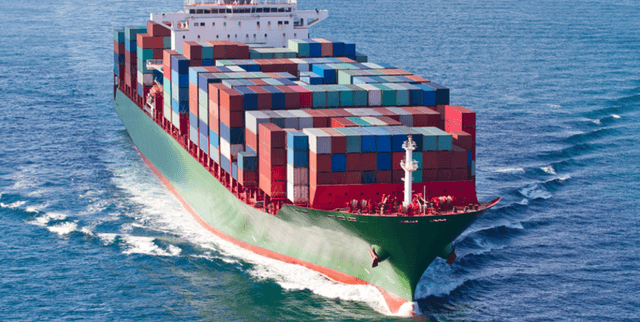International Shipping Fleet Data
Data Science and Analytics
Tags and Keywords
Trusted By




"No reviews yet"
Free
About
Insights into the specifications and characteristics of global cargo ships are provided in this data, collected from vesselfinder.com. It is ideal for analysis related to water transport, data cleaning, and data visualisation. The data focuses on key physical and operational metrics of various vessels, offering a valuable resource for maritime industry research, logistical planning, and efficiency studies.
Columns
- Company_Name: The name of the company that owns or operates the ship.
- ship_name: The name of the specific cargo ship.
- built_year: The year in which the ship was constructed.
- gt: Gross Tonnage, which measures the total internal volume of all enclosed spaces on the ship and is used for regulatory purposes like registration fees and safety regulations.
- dwt: Deadweight Tonnage, representing the total weight a ship can safely carry, including cargo, fuel, and crew. It is often used to calculate freight rates.
- length: The overall length of the ship.
- width: The overall width of the ship.
Distribution
The data is distributed in three separate CSV files:
cleaned.csv, uncleaned.csv, and Port locations. The provided sample (Cleaned_ships_data.csv) is 10.7 kB and contains data for 200 ships across 7 columns.Usage
Ideal applications for this dataset include:
- Analysing trends in ship manufacturing and design over time.
- Visualising the specifications of different types of cargo ships.
- Performing data cleaning and preparation tasks using the uncleaned version.
- Conducting market research and competitive analysis within the shipping industry.
Coverage
The dataset covers global cargo ships with construction years ranging from 1976 to 2023. It includes various ship types, with Bulk Carriers (34%) and Container Ships (26%) being the most common in the cleaned sample. There is no specific geographic or demographic scope mentioned beyond the global nature of the shipping data.
License
CC0: Public Domain
Who Can Use It
- Data Analysts and Scientists: For projects involving data cleaning, visualisation, and statistical analysis of maritime data.
- Maritime Industry Researchers: To study historical trends in ship design, capacity, and efficiency.
- Logistics and Supply Chain Professionals: To gain insights into the vessels used in global trade.
- Students and Academics: As a practical dataset for intermediate-level data science and analytics courses.
Dataset Name Suggestions
- Global Cargo Ship Specifications
- Maritime Vessel Characteristics Database
- International Shipping Fleet Data
- Cargo Vessel Dimensions and Tonnage
Attributes
Original Data Source: International Shipping Fleet Data
Loading...
Free
Download Dataset in ZIP Format
Recommended Datasets
Loading recommendations...
